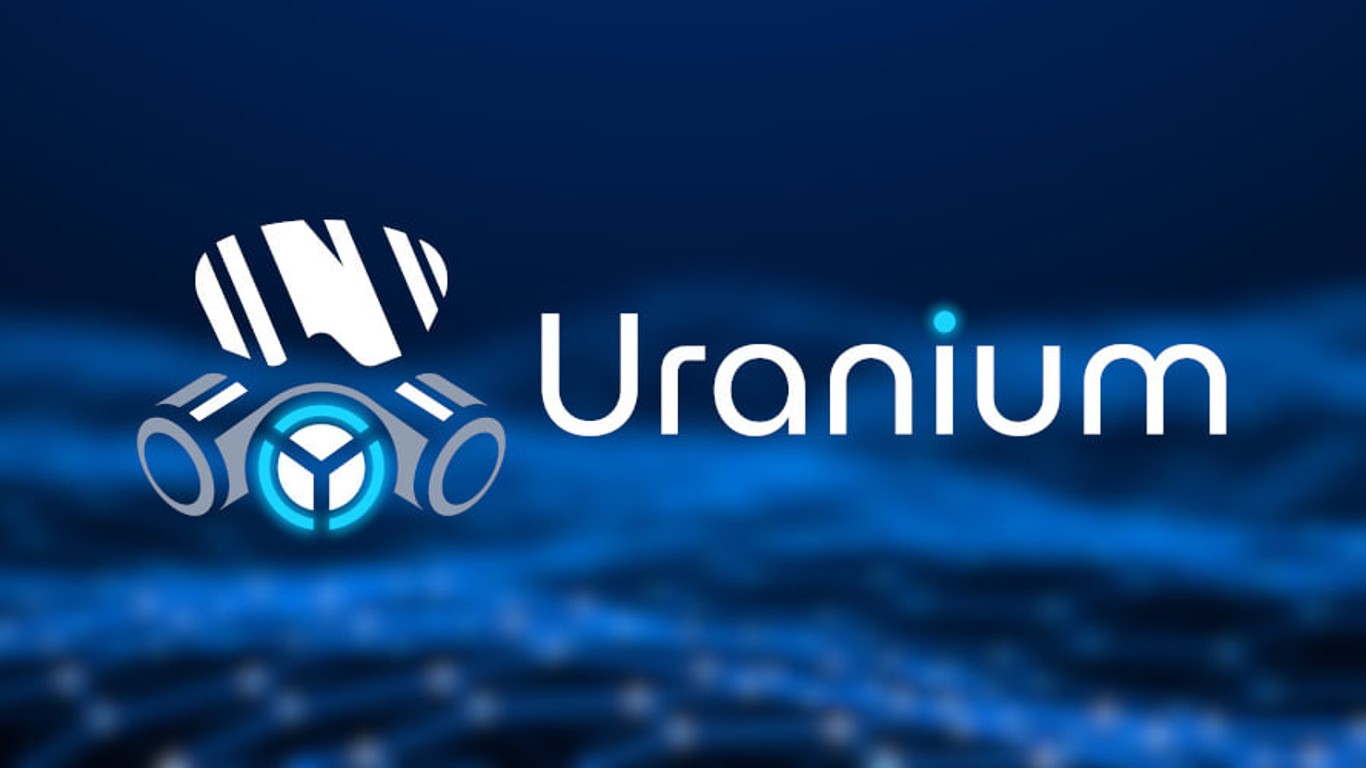

Last September, uranium prices reached a 10-year high of around $51.00 a pound. The burst of enthusiasm for the metal was triggered by the July launch of an ETF that holds physical uranium, the Sprott Physical Uranium Trust Fund, which trades over-the-counter in the United States under the symbol SRUUF.
[in-text-ad]
In mid-April, uranium hit a 12-month high of around $65.30 a pound. Unsurprisingly, uranium mining stocks also posted new or close to new annual highs. Since then, uranium prices have declined by about 10% and, again unsurprisingly, uranium miners’ shares have tumbled by 25% or more. The sharp drop in the commodity price was attributed to a drop in Sprott’s purchases and broad market conditions that challenged commodity prices in general.
Nick Lawson, CEO of U.K.-based Ocean Wall and an expert on the uranium market, told S&P Global last week that commodity market challenges “resulted in U.S. funds closing out positions on mining stocks as well as other positions to support margin calls. This could have resulted in a fund selling a large volume of uranium holdings, and [Sprott Physical Uranium Trust] did not have the cash to support the bid.”
Sprott recently completed its $1 billion acquisition of North Shore Global Uranium Mining ETF, which now trades, with no ticker symbol change, as Sprott Uranium Miners ETF (URNM). Sprott also launched the uranium miners ETF in a so-called Ucits version listed in London. Ucits is a regulatory framework that allows for the cross-sale of European mutual funds and ETFs. As its name implies, the URNM ETF holds stocks of uranium mining companies, plus a 9.2% weighted share of Sprott’s own physical uranium fund.
Uranium prices have increased by more than 80% over the past 12 months, even including the recent downturn. But Morningstar analyst Kenneth Lamont warned in a Thursday report at the Financial Times that “[m]uch of flow into these funds is likely to be speculative and may be withdrawn if and when enthusiasm cools.”
In our September look at five uranium mining stocks, we noted that many miners were getting set to reopen idled mines once prices reached the $61.00 level and appeared to be able to hold that price for a while. That day may not be here yet, but we thought now might be a good time to revisit these stocks. To help set the stage, note that the Sprott Physical Uranium Trust (SRUUF) was up about 14% since the end of September 2021, as of Thursday’s close. The firm’s new Sprott URNM ETF closed down about 2.5% on Thursday.
Uranium Energy
The stock posting the biggest share price improvement since last September is Uranium Energy Corp. (NYSEAMERICAN: UEC). The Corpus Christi, Texas-based firm operates uranium mining projects in the United States, Canada and Paraguay. The company’s market cap is $1.19 billion, and its enterprise value is $1.17 billion. Both have increased by more than 25% since September.
UEC’s stock price is up more than 27% over the past 12 months and up 74% since a recent low in late January. At its mid-April peak, the shares were up 98% for the 12-month period.
[in-text-ad]
The company’s surge to a new high in April was the result of federal filings verifying that the company’s acquisition of Uranium One was material to Uranium Energy’s business and was, indeed, a valuable resource. The Wyoming project includes nearly 62 million pounds of measured and indicated resources and another 7 million pounds of inferred mineral resources. The acquisition also included a processing facility for the seven Wyoming mine sites.
Of five analysts covering the stock, four have a Buy or Strong Buy rating and the fifth rates the stock at Hold. The median price target on the stock is $6.60, implying a gain of about 59% from the most recent closing price of $4.26. Shares traded at around $4.11 in the late morning Friday.
Cameco
Saskatchewan-based Cameco Corp. (NYSE: CCJ) has a market cap of around $9.5 billion (up 14.5% since September) and an enterprise value of $9.14 billion (up 11.3%). Its customers are nuclear-powered utilities in the Americas, Europe and Asia. The company reported earnings on Thursday that beat on profits but missed on revenue. CEO Tim Gitzel commented:
Durable demand is being driven by the accountability for achieving net-zero carbon targets while balancing the need for affordable, reliable, and secure baseload electricity, all while diversifying away from reliance on Russian energy supplies. Governments and policy makers are increasingly recognizing the role that nuclear plays in achieving those objectives.
Gitzel also noted the “continued thinning of the spot market by physical uranium investors.” That would be Sprott’s physical ETF, of course.
Cameco’s stock price has increased by about 13% since last September. Of 12 brokerages covering the shares, all have a Buy or Strong Buy rating. At a share price of around $23.60, the upside potential based on a median price target of $36.43 is 54.3%. At the high price target of $36.95, the upside potential is about 56.6%. Shares traded down about 3.4% Friday morning at $23.64.
Energy Fuels
Energy Fuels Inc. (NYSEAMERICAN: UUUU) is based in Colorado and all its operations are located in Utah, Wyoming, Arizona, New Mexico and Colorado. The company’s market cap is $1.08 billion (up 7.0%) and its enterprise value is $966.1 million (up 3.5%).
Over the past 12months, the stock is up about 11%. From its peak in mid-November, however, the shares are down more than 25%. In September, the stock was up 385% for the preceding 12 months. Energy Fuels has been diverting some of its attention and spending into a novel method for providing rare earth metals. The company sold no uranium in 2021 (by choice) but is currently chasing sales contracts.
[in-text-ad]
All six analysts covering the stock rate the shares at Buy or Strong Buy. The stock’s 52-week range is $4.32 to $11.39, and shares were trading Friday at around $6.90, down 3% for the day.
Using the median price target of $10.25, the implied upside on the stock is 48.6%. At the high price target of $13.00, the implied gain is 88.4%.
NextGen Energy
Vancouver, Canada-based NextGen Energy Ltd. (NYSEAMERICAN: NXE) owns 32 mineral claims with a total contiguous mining area of around 89,000 acres in the Athabasca Basin of Saskatchewan. The company’s market cap is $2.13 billion (down 7.4% since September), and its current enterprise value is $2.05 billion (down 6.4%).
Over the past 12 months, the shares have dropped by about 2.5%. An interesting note is that it has peaked twice near the same high price and plummeted twice near the same low price. That range is plus 40% to minus 23%.
All 10 analysts covering the stock have a Buy or Strong Buy rating. No price target is available, and shares were trading around $4.50, down about 3.6% for the day, in a 52-week range of $3.47 to $6.56.
Denison
Denison Mines Corp. (NYSEAMERICAN: DNN) is a Toronto-based company that operates its flagship Wheeler River mining project in the Athabasca Basin of northern Saskatchewan. Denison’s market cap is $1.01 billion (down 12.9% since September), and its enterprise value is $941.67 million (down 12%).
The Russian invasion of Ukraine lifted share prices for most uranium miners, but the lift was only temporary. As was the case with the other junior miners, rising oil and natural gas prices generated a knock-on effect for other energy sources. That relationship broke down last month, likely because commodities traders no longer saw a strong connection.
Of seven analysts covering the stock, five have a Buy or Strong Buy rating and the other two have a Hold rating. There median and high price target on the stock is $4.25, implying an upside of $70.5% based on a price of around $1.25.
Sponsored: Attention Savvy Investors: Speak to 3 Financial Experts – FREE
Ever wanted an extra set of eyes on an investment you’re considering? Now you can speak with up to 3 financial experts in your area for FREE. By simply
clicking here you can begin to match with financial professionals who can help guide you through the financial decisions you’re making. And the best part? The first conversation with them is free.
Click here to match with up to 3 financial pros who would be excited to help you make financial decisions.
Thank you for reading! Have some feedback for us?
Contact the 24/7 Wall St. editorial team.
 24/7 Wall St.
24/7 Wall St.


